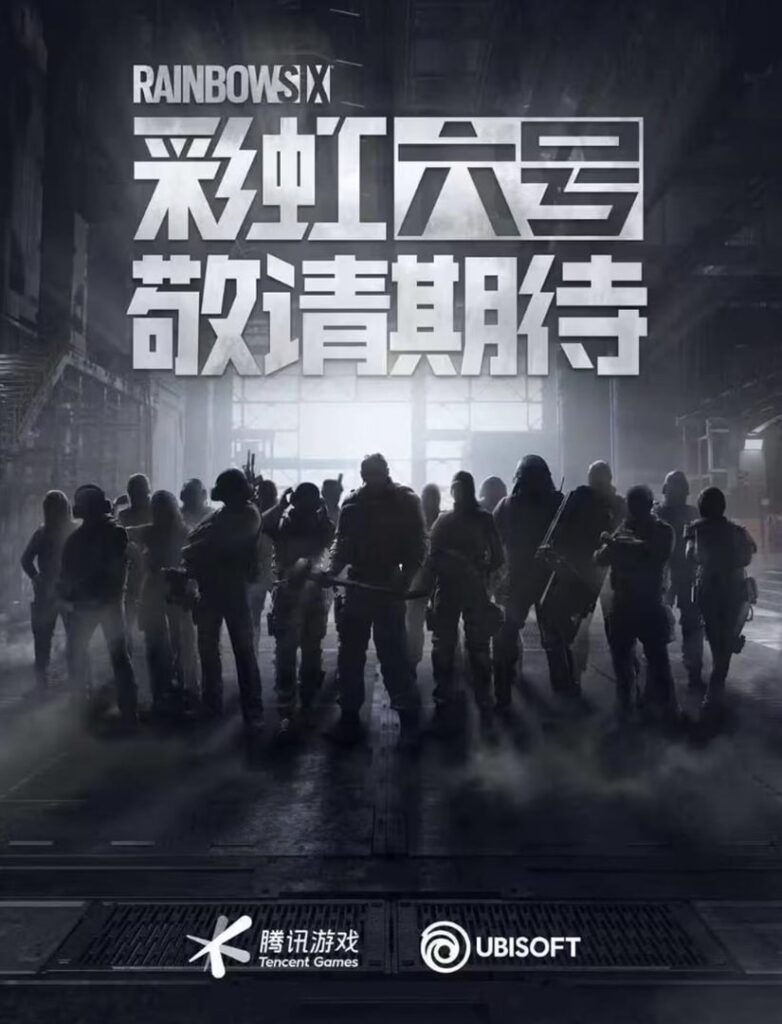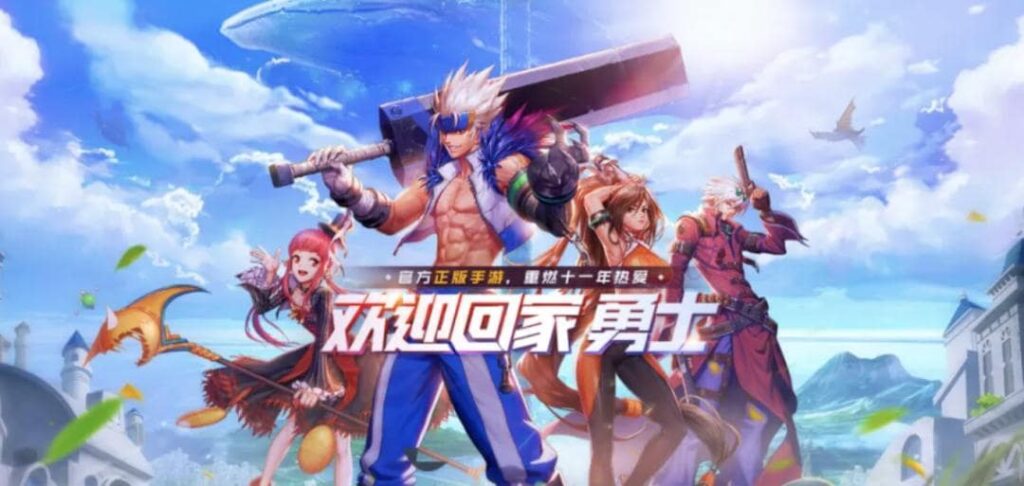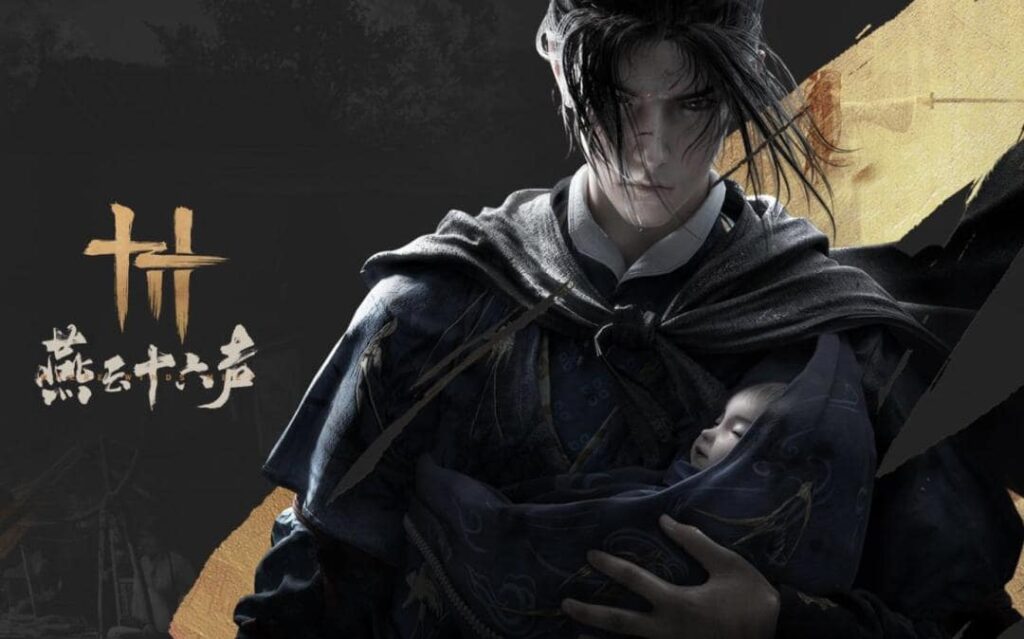Header image source: Game Science.
The summer game season came and went, but the buzz around Black Myth: Wukong lingers, prompting gamers and industry insiders alike to rethink what’s next in the evolving world of video games.
As the first Chinese-developed AAA game to take the spotlight, Black Myth: Wukong reshaped the summer landscape. But for the country’s major game studios, the season played out differently. Some of the biggest names, anticipating the game’s monumental influence, chose caution. Major releases and marketing plans were shelved to avoid clashing with the surge in traffic and attention that the game commands.
While some saw this as studios trying to steer clear of the game’s overwhelming impact, others say it speaks to a deeper issue: the need for more time to polish and optimize in an increasingly competitive space. One thing’s clear—a new arms race has begun in the gaming world, and the players are gearing up for what comes next.
End of summer, not the end of the buzz
Li Xiaolong, a live streaming guild manager, was one of the many caught up in the whirlwind created by Black Myth: Wukong. His routine flipped overnight—gone were the days of clocking out early. To ride the wave, Li stretched his streamers’ sessions from 2 to 12 hours a day. “One host goes live 30 minutes before the other finishes, ensuring that we always keep the traffic in our guild’s streams,” Li said.
It worked. One of Li’s streamers, a virtual unknown, pulled in 10,000 viewers in the second session. Over two days, the peak number of live viewers hit 80,000, and the streamers were making more than RMB 10,000 (USD 1,405) daily.
Black Myth: Wukong, which launched on August 20, is just one glimpse into the year’s booming gaming industry. According to VG Insights, the game has sold 18.7 million copies as of September 11, raking in close to USD 900 million in gross revenue.
Zhu Chuntao, a veteran gaming industry investor, shared with 36Kr that even investors who had stopped paying attention to the gaming industry, including himself, are starting to turn back around—simply because there’s money to be made.
He added that he will definitely invest in the gaming industry this year and is already in deep negotiations for several projects. By the time Zhu spoke to 36Kr, his voice had become hoarse from attending six meetings in one day. After the interview, he hurried off to his next meeting.
But Black Myth: Wukong is only the beginning. Li described this summer as “tasteless” compared to last year. The season felt quieter—even Dungeon & Fighter: Origins, which had given Tencent a brief boost in revenue, barely made a dent.
Another media professional in the gaming space shared a similar sentiment, noting that the number of sponsored content deals and his overall sense of the industry didn’t feel much different from last year.
But that doesn’t mean the Chinese gaming market is dead outside of Black Myth: Wukong.
One of NetEase’s most anticipated releases this year, Where Winds Meet, postponed its public beta test from July 5 to August 28 for large-scale testing. Tencent’s Timi Studio Group is also set to launch Delta Force, while Tencent’s MoreFun Studios will release Arena Breakout: Infinite, the PC sequel to Arena Breakout.
This means the buzz surrounding the gaming industry will continue beyond summer.
Another factor driving the current industry buzz is the renewed approval process for game licenses. One former Rainbow Six Siege streamer recalled that the game, which failed to secure a license five years ago, was finally listed in August among newly approved imported titles. Five years ago, streamers on the cusp of signing contracts with platforms had to back out when Tencent couldn’t secure the license. Many left the scene altogether, and China’s import of AAA games entered a five-year “dark age.” Now, things are different.

According to a 2024 semi-annual game security report jointly released by CNG and Tencent’s Anti-Cheat Expert (ACE) division, 689 games were granted licenses between January and June 2024. That’s a 25% increase compared to last year’s numbers and represents nearly 70% of the total licenses issued in all of 2023. While license approvals have created opportunities, the overall market has started to plateau. Data from CGIGC shows that China’s gaming market grew just 2.08% in actual sales revenue year-on-year, with gaming users growing a modest 0.88%.
The industry’s not only more competitive, but it’s also evolving rapidly. Daxiong (pseudonym), who leads operations at NetEase, was baffled by the marketing push behind Eggy Party, which centered on a crossover event with NetEase’s older game Identity V. “Same soup, different pot,” he said metaphorically.
It’s clear NetEase’s view of Eggy Party, once a crown jewel, has shifted. The clearest signal came in the company’s Q2 financial report, where Eggy Party’s performance was conspicuously absent, with only a note about its upcoming global release on the Nintendo Switch. The report also revealed a 5.8% decline in gaming revenue, driven by a slowdown in mobile game sales. What seemed like a party game juggernaut might not be as big as initially thought.
As the competition heats up, finding new success stories in China’s gaming market is proving to be harder. Dungeon & Fighter: Origins is one of the few highlights. A former team member told 36Kr that the game was initially forecasted to generate around RMB 1.2 billion (USD 168.6 million) in annual revenue. However, according to Sensor Tower’s June report, the game’s monthly revenue exceeded USD 250 million, surpassing its earnings in South Korea for the entirety of 2022.

Lao Luo (pseudonym), a longtime player in the media and live streaming space, said these results reflect the state of the current gaming market—stable on the surface but churning underneath. “Even seasoned pros are making mistakes,” he said.
Arthur (pseudonym), who handles user acquisition at a top Chinese game company, echoed the sentiment. The post-pandemic push for return on investment is more aggressive than ever. “Last year, we hit an ROI of 1,” Arthur explained. “This year, we need to get to 1.1 or even 1.2.” And that’s with no updates to the product.
Despite the pressure, overall spending on paid user acquisition has declined each year, revealing a paradox: it has become part of the norm in China’s fiercely competitive gaming market.
On one hand, user acquisition costs have skyrocketed. Arthur said that, in 2019, acquiring one user costs RMB 100 (USD 14). Five years later, that figure has risen to RMB 200 (USD 28.1), even against the backdrop of the internet industry’s push for cost control and efficiency.
On the other hand, paid user acquisition has lost its previous effectiveness in the gaming industry. In a saturated market, most users have already been acquired once—or multiple times. Only minigame segments have been an exception.
As market growth slows, the competition only intensifies. Lao Luo described it as a “rapidly escalating arms race,” and many insiders are pointing to a clear trend: high-quality games are on the rise. Players who were once satisfied with smaller sandbox titles now demand open-world experiences.

Caesar (pseudonym), an employee at Papergames, said his company’s next big release, Infinity Nikki, will be the most competitive game in the Nikki series yet. Expectations are so high that Caesar turned down a RMB 1 million (USD 140,470) annual offer to stay on the project. “Imagine how longtime MMORPG players felt the first time they saw Genshin Impact,” Caesar said.
Over the years, Nikki has evolved from a simple dress-up game to Infinity Nikki, which now features character customization, 3D effects, and Unreal Engine graphics. According to Caesar, development costs have increased tenfold, but “the content, quality, and genre are finally coming together at the perfect time.” Competing with Infinity Nikki will take a massive budget—beyond what most games can match.
The Nikki series is just one battleground. Tencent and NetEase dominate China’s gaming market, and they are the principal players in this arms race. According to sources, Tencent’s Yuan Meng Star cost between RMB 800 million (USD 112.4 million) and RMB 1 billion (USD 140.5 million) to develop, surpassing even some AAA games globally. Despite the investment, the game has yet to dominate the party-game segment.
This rivalry has become a cash-burning battle, with companies like Li’s guild benefiting along the way. In one video, he shared that he earned RMB 50 (USD 7) for every Eggy Party download and RMB 22 (USD 3.1) for every Yuan Meng Star download—something unheard of in the industry. In June, NetEase released the first-person shooter Lost Light, signaling its intent to compete with Tencent in niche markets.
The calm before the storm
Li’s summer wasn’t all about Black Myth: Wukong. Most of his streams focused on Honor of Kings, a game that has been around for eight years. “New games don’t always hook players,” Li said, “but Honor of Kings will always have kids playing.” Tencent’s collaboration with ByteDance and its changing strategy have been factors in its continued success.
Tencent’s Q2 report in August showed that, after several sluggish quarters, the company posted a 9% increase in gaming revenue. The boost came largely from the success of Honor of Kings and PUBG Mobile, both of which saw significant year-on-year growth. Tencent has made it clear—its strategy is to double down on its two most successful titles and invest in new evergreen games to sustain growth long-term.
NetEase, along with other developers, is also exploring different distribution channels. A veteran industry insider told 36Kr that NetEase’s upcoming Q4 release of Where Winds Meet will take a different approach from last year’s Justice. There’s an increased focus on single-player gameplay and open-world exploration, the insider said, adding that Where Winds Meet would likely push for more development on the PC platform.

Compared to mobile gaming, the PC user base may be smaller, but player retention and spending power are typically higher. Developers also don’t have to share revenue with mobile platforms. High-quality developers, confident in their technology, are more inclined to shift their players to PC platforms. Games like Wuthering Waves and Zenless Zone Zero are leading the charge.
According to CGIGC, mobile games still dominate the Chinese market, but PC games have captured 22.93% of the market share in the first half of 2024, signaling a comeback.
While Tencent and NetEase are riding the wave of competition, not every company is faring as well. At Perfect World, layoffs are a constant concern. Xiaoxiong (pseudonym), who works on one of the company’s older IPs, said that although his project has been relatively stable, colleagues are asking if layoffs are coming.
“If there’s a quota, we’ll eventually be hit,” Xiaoxiong said. “Getting laid off might actually be better,” he added. One of his former colleagues worked at a small company that couldn’t pay its staff. “When he left, the company still owed him two months’ wages.”
Another employee at a gaming company in Guangzhou mentioned that layoffs were taking place there, too. “The only secure job is the cleaner,” he said. “Everyone else is at risk.”
Reports from Entertainment Capital show that, over the past two years, layoffs have affected 7,400 people across 35 gaming companies, excluding giants like Tencent, NetEase, and Mihoyo. Between 2019–2021, these companies had been rapidly expanding.
As conditions worsen, industry professionals are taking matters into their own hands. Xiaoyou (pseudonym) left FunPlus after less than four months and joined NetEase. “When the market was good, everyone could make money with games,” he said. “Now, if you’re not making premium games, you’re not making money.”
Arthur also recently left Perfect World after years of service to pursue better opportunities and a higher salary elsewhere. Even though minigames are providing a lifeline for midsized game companies, the reshuffling continues.
“It’s easier for big companies and small companies,” Xiaoxiong said. “The big ones have resources and advantages, while the small ones have lower costs and more motivation to try new things. But the older, listed companies in A-shares aren’t doing so well.”
Now that the calm summer season has ended, an even fiercer arms race is brewing.
In this zero-sum game, those who lose will find it hard to get back in.
KrASIA Connection features translated and adapted content that was originally published by 36Kr. This article was written by Lan Jie and Liu Shiwu for 36Kr.
